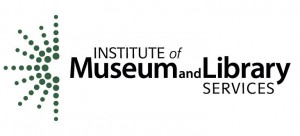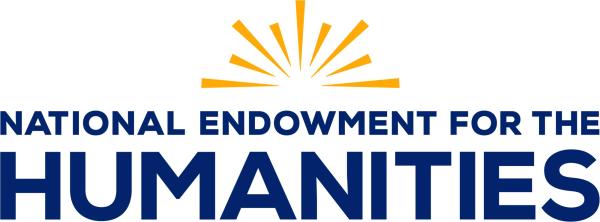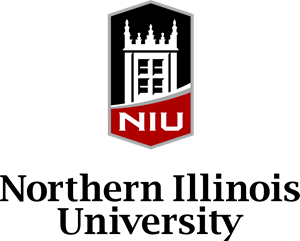Applications have closed for Phase 2.
- Are you a library or archives worker tasked with overseeing digital collections at your job?
- Are you short staffed, or have no/little budget to dedicate to this work?
- Are you overwhelmed at the scope of the issues regarding stewarding your digital materials, and aren’t sure where to get started or what steps you need to take to safeguard your collections?
- Have you been curious about undertaking assessment work, but are unsure where to start?
- Do you frequently feel alone, or like you have no one that you can ask for advice, or even use as a sounding board for your ideas?
- Do you have questions about technology implementation, workflows, best practices, creating policies, and advocating for support within your organization?
- Do you have some work time available that you can dedicate to learning about and engaging in assessment work?
- Would you like to be PAID to gain this experience, and to share with your peers?
If you answered yes to these questions, then the Digital POWRR Peer Assessment Program may be for you!
About the Program
The Digital POWRR Peer Assessment Program is a supportive, year-long, cohort-based training program for cultural heritage professionals who are interested in learning and applying digital preservation assessment procedures into their work. Digital preservation assessments help to document the state of current preservation and stewardship practices; to identify gaps and areas in need of increased attention and resources; to identify challenges that may stand in the way of improvement; and to provide suggestions for how an organization can make changes that will result in iterative programmatic maturity. This program will be delivered entirely online.
Three cohorts of six participants, each with a peer facilitator, will work over the course of one year to perform systematic analyses of each organization’s current stewardship practices, focusing on the creation of achievable goals and activities. The first half of the training period will be dedicated to preparing for and performing two rapid self-assessments and one in-depth peer assessment. In the second half of the program, participants will work with peers and facilitators on setting goals, based on recommendations set forth in their peer assessments, and will start to work on tackling some of their digital stewardship challenges.
The Sustainable Heritage Network and the Midwest Archives Conference (MAC) are serving as our Phase 2 partner organizations. If you are a member of either of these organizations, your application will receive priority in our selection process.
What is required of participants?
This program is a one-year commitment, and has the following requirements. Participants will need to:
- Attend a short orientation, and regular monthly meetings with your cohort. You will also need to meet
- Attend several live training modules
- Establish regular contact with your mentor and assigned partner throughout the course of the year. (Please note: some of these meetings will need to occur during regular work hours, although some training and work can be done in evenings and weekends.)
- Share your experiences in the program (briefly) in a final project showcase, which will be conducted via Zoom.
- Agree to the POWRR Code of Conduct.
Participants will also need to complete several written items during the course of the program, which will make up their “POWRR Plan” document. We will provide guidance and templates for all components, so please do not let this intimidate you! The “POWRR Plan” will include the following components for each participant:
- Institutional case study: a short write up about your current workplace, the types of collections you steward, your organizational structure, your funding/budget situation, etc. This will also include summaries of the results of your assessments. Participants will create part of this at the start of the program, and will complete it at the end of the training year, once they have started to implement some of their short term programmatic goals.
- NDSA Levels of Preservation – a short summary of your self-assessment findings.
- DPC-RAM Self-Assessment – a short summary of your self-assessment findings.
- NEDCC’s Digital Preservation Peer Assessment Framework – participants will be matched with a partner and will work together on completing a longer form written peer assessment report.
What are the benefits to participating?
- Program participants will receive a $3000 stipend, which will be paid in 2 allotments of $1500. $1500 will be paid at the start of the program, with the other $1500 being paid at the end of the program, once all written materials are turned in.
- Participant’s employers will also receive a $870 “Technology Start Up” award that can be provisioned towards helping to jump start digital preservation activities. This can be spent on software, hardware, peripherals, additional training opportunities (webinars, workshops, conferences, etc.), consultant fees, subscriptions, educational resources, or other expenses deemed acceptable by cohort mentors.
- NEW! Program participants in this Phase will also be provided up to $1000 of digitization services generously supplied by The Crowley Company.
- Participants will also have the ability to publish their case studies and/or assessment reports as part of the project’s final white paper.
- Participants will be placed into small cohorts of 6 individuals, under the guidance of a mentor. The hope is that this community of practice will provide participants with a supportive environment in which to learn and ask questions.
- Increased knowledge of digital stewardship assessment procedures and increased confidence in knowing how to undertake assessment work, especially collaboratively. This will benefit participants, the collections they steward, and the organizations they are a part of.
Important Dates
- Deadline for applications was November 10, 2023.
- Final decisions will be sent out via e-mail by December 4
- Participants will be asked to confirm commitment by December 15.
- All participants will need to attend a cohort orientation in January 2024 (dates TBD)
Interested?
Applications closed on November 10, 2023.
Please note that if you are considered an employee of the federal government, you are eligible to participate in the program. However, per IMLS rules, we are unable to provide you with the participant stipend and the Tech Start Up funds. If you have specific questions about this, please let us know. Please note that due to funding regulations, this program is only open to residents of the United States.
If you have further questions about the program, please get in touch with Stacey Erdman, Project Director, at staceyerdman@arizona.edu.




